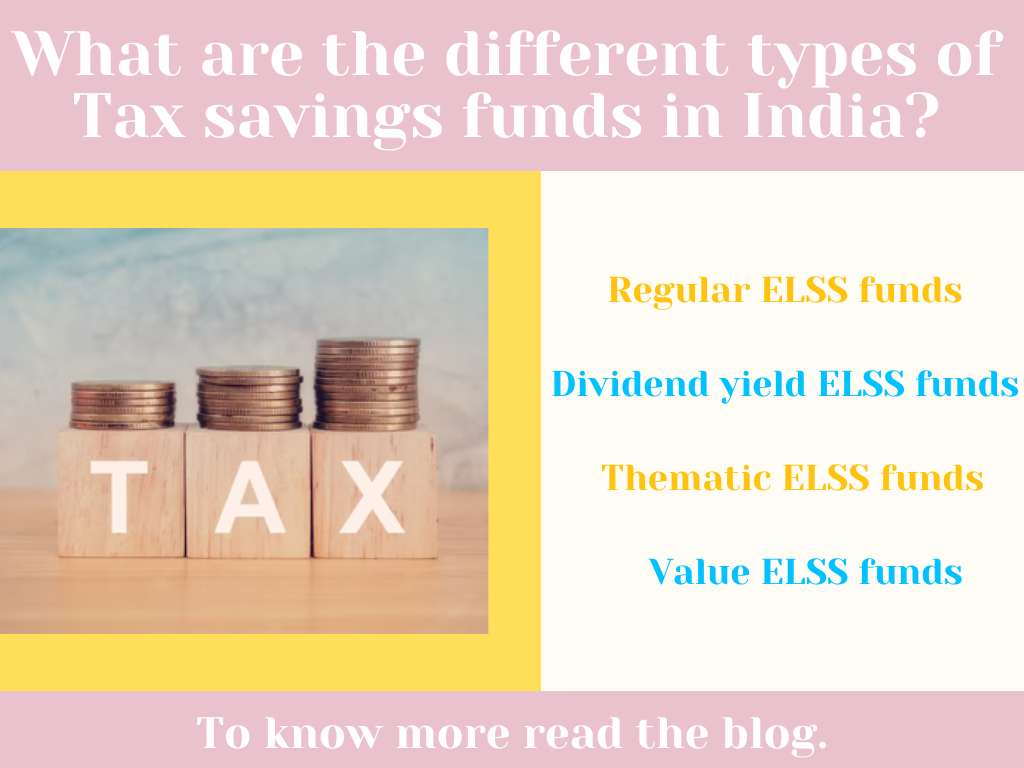What are the different types of Tax savings funds in India?
Tax savings funds, also known as Equity Linked Savings Scheme (ELSS), are a type of mutual fund that provides tax benefits under Section 80C of the Income Tax Act, 1961. These funds primarily invest in equity securities and have a lock-in period of 3 years. In India, there are several types of tax savings funds available to investors, each with its own investment objective and risk profile. Here are some of the most common types of tax savings funds in India:
Regular ELSS funds: These funds invest in a diversified portfolio of equity securities, with a focus on long-term growth. The lock-in period for these funds is 3 years, and investments of up to Rs. 1.5 lakhs per year are eligible for tax deductions.
Dividend yield ELSS funds: These funds primarily invest in dividend-paying stocks, with a focus on generating regular income for investors. The lock-in period for these funds is 3 years, and investments of up to Rs. 1.5 lakhs per year are eligible for tax deductions.
Thematic ELSS funds: These funds invest in stocks of companies that operate in a particular sector, such as banking, healthcare, or technology. The lock-in period for these funds is 3 years, and investments of up to Rs. 1.5 lakhs per year are eligible for tax deductions.
Value ELSS funds: These funds invest in stocks of companies that are undervalued by the market, with a focus on generating long-term growth. The lock-in period for these funds is 3 years, and investments of up to Rs. 1.5 lakhs per year are eligible for tax deductions.
It's important to note that tax savings funds are subject to market risks, and investors should carefully consider their investment goals and risk tolerance before choosing a fund. Additionally, while investments in tax savings funds are eligible for tax deductions under Section 80C, the returns generated by these funds are taxable.


